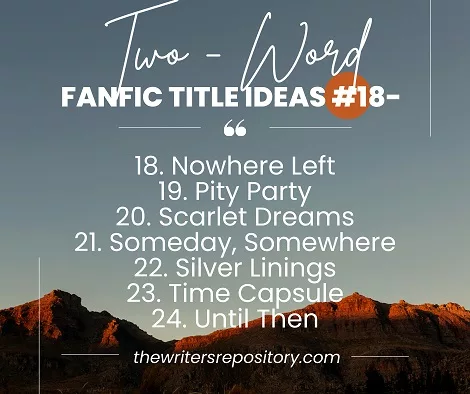Are you looking for descriptions for the smell of nature? You’ve come to the right place! From mildewed to petrichor, we have all the words you need to describe the beautiful natural world that surrounds us!
Related posts: Vivid Description in Creative Writing Examples
This post may contain affiliate links, which means that I may receive a commission, at no cost to you, if you make a purchase using these links.
Smell as a Potent Descriptor in Writing
The sense of smell is known as the strongest sense for memory inducer. When your writing contains descriptions of various smells, you have the potential to trigger your reader’s most nostalgic memories; hence, your writing will stay with them longer!
Examples of Natural Smell Descriptions in Writing
Inject your writing with the smell of nature whenever appropriate, be it when your character is out exploring nature, or to draw comparison/parallel between their current situation and the natural world around them.
Let’s look at two examples to illustrate this point.
1. This first example lets us experience the world as the character in the story experiences it. The rich description transports us to Louisiana in September, how heady and overwhelming it is, just as the author describes it.
Louisiana in September was like an obscene phone call from nature. The air–moist, sultry, secretive, and far from fresh–felt as if it were being exhaled into one’s face. Sometimes it even sounded like heavy breathing. Honeysuckle, swamp flowers, magnolia, and the mystery smell of the river scented the atmosphere, amplifying the intrusion of organic sleaze. It was aphrodisiac and repressive, soft and violent at the same time.
– Tim Robbins, Jitterbug Perfume (1990)
2. This second example draws a parallel between what the character is feeling and the world around them. Autumn smelled acrid to the character in this story, and it mimicked the fear he felt inside.
The acrid scents of autumn, reminiscent of slinking beasts, make me fear.
– D.H. Lawrence, The Complete Poems (1994)
*
Three Broad Categories of Natural Smell
Do you know that human’s olfactory sense can detect 1 trillion odors? It’s no surprise that we frequently struggle to describe the smell of nature, with its plethora of colorful scents. But, a good writer must try, right?
Let’s classify natural smells into three categories. Here they are, with some alternative words to describe them.
Fresh and Light
When I think of nature, my mind automatically goes to an open air, green area with lots of sunshine, free of manmade buildings. Meadows, forests and mountains are some examples. The smells associated with such places are fresh and light.
Another way to say this would be:
– Airy: a flighty kind of smell that just wants to lift you up to new heights.
– Alpine: reminiscence of high mountains.
– Clean: that odorless smell that fills up the lung when you’re surrounded by nature.
– Crisp: a sense of cleanness that you could almost bite into, like biting into a particularly refreshing chunk of apple.
– Fresh: the kind of invigorating smell that overtakes you as if you’re standing beside a waterfall.
– Fruity: the sweet, refreshingly light smell of fruits.
– Minty: a smell that almost pierces your nose and fills you up with cool air.
– Ozonic: fresh and clean air, especially the one breathed at the seaside. (Ozone in informal British refers to fresh air.)
– Piney: a smell that calls back to the smell of pine trees in the forest, it’s peppery with a dash of minty and at the same time is said to be a good antidepressant.
– Sun-baked: a clean kind of smell that is dry and a bit musky.
Deep and Pleasant
The smell of rain as it starts to hit dry earth, or the sea breeze at the hull of a ship. They stay with you for a long time and yet do not repulse you. Oceans and jungles are places that tend to carry these deep, pleasant smells.
Here are some words that can describe that deep yet pleasant scents of nature:
– Ambrosial: succulently fragrant or sweet.
– Earthy: the smell of freshly dug soil.
– Damp moss: the forest aroma after being steeped in the rain all day long.
– Floral: richly sweet, flowery scents.
– Myrrhic: a pleasant myrrh fragrance. (Myrrh is a sap-like substance or resin from the bark of certain trees. Furthermore, myrrh itself is described as warm, woody and aromatic with a hint of pungency.)
– Musky: an animalistic scent that is earthy and woodsy, it’s a scent that’s close to human skin but more intense and heady.
– Oceanic: the salty, breezy scent of the sea.
– Petrichor: the light smell of rainwater as it makes contact with dry earth.
– Peppery: a deep, aromatic smell that is a little pungent and musty, reminiscence of pepper.
– Resiny: resin-like smell
– Smokey: a deep woodsy scent with a hint of burnt matter.
– Spicy: a strong, aromatic sweet scent that is reminiscent of hot spices.
– Tang: a refreshingly sharp aroma.
– Tropical: a sweet and strong scent that’s coming from a combination of tropical herbs, spices and fruits.
– Woodsy: the collective smell coming from the various growth you might find in a forest.
– Zesty: a smell akin to spicy.
BEFORE WE CONTINUE…
It could be time to make an investment in a quality dictionary if you need extra assistance to reference that particular term that keeps eluding you. Check out a few options below:
1. This Thesaurus broadens your ability to describe the world around you through seeing, hearing, touching, tasting, and smelling.
PLEASE CLICK ON THE IMAGE FOR MORE INFORMATION!
*
2. The book below is a fascinating, weird, and awe-inspiring investigation of scent. Read what Jack Hitt (author of Bunch of Amateurs) said about this book: “The nose on your face is the Buckingham Palace Guard of your body, the maitre d’ of all taste, as well as the seducer of your imagination, and memory—and Jude Stewart has charmed them all into a wicked, poetic and illuminating tour of their mysterious domains.”
PLEASE CLICK ON THE IMAGE FOR MORE INFORMATION!
*
NOW, to continue down our list…
Richly Unpleasant
Lastly, nature can smell unpleasant, too. Oceans, swamps, natural springs, and many other natural places sometimes carry pungent aroma be it from decomposing organic matters or other natural, earthy elements. Here are some words to describe them:
– Acrid: sharp and harsh smell,
– Cadaverine: a foul-smelling diamine produced by protein hydrolysis during putrefaction of dead organic matters.
– Effluvium: a foul-smelling gas or vapor.
– Fetid: foul-smelling or stinking.
– Fishy: a smell reminiscent of fish.
– Fusty: stale-smelling or stuffy.
– Gamey: the strong smell of game meat.
– Hircine: an odor reminiscent of goat.
– Marshy: distinctive and pungent “rotten egg” smell.
– Mephitis: a strong smell, especially emitted from the earth.
– Mildewed: that scent when an organic matter is steeped in wetness for too long that it has gone stale and started decomposing.
– Musty: the deep scent of decaying matters and rotting woods.
– Oceanic: a salty, breezy seaside smell with hints of fishy and rotten smell.
– Stale: the smell of old, forgotten, and stagnant matter.
– Stenchy: having a stench, foul odor.
– Putrid: the stench emitted by decomposing organic matter.
– Rancid: rank in smell.
– Reek: strong, unpleasant smell.
– Sulphury: sharp, pungent smell.
As a closing, when I feel stumped in describing natural smells, what I love to do is to browse through catalogs of perfume descriptions and let the words inspire me.
More
I hope the list of smell descriptions of nature listed above is useful for you. For a similar post, head to Vivid Description in Creative Writing Examples
Or if you’re looking for writing prompts, check out Surreal Writing Prompts, Unique Zombie Ideas, or browse our Story Ideas & Writing Prompts category for more ideas.
Until next time!







